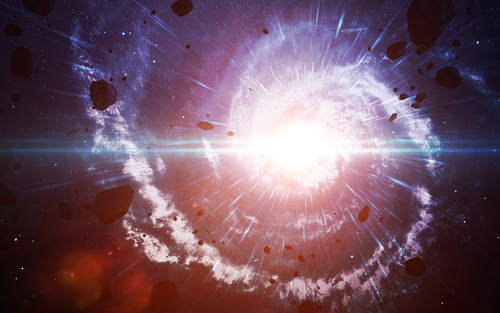
Once more a situation that is such mainly because of stubborn belief in Big Bang theory.
No matter how many anomalies that are only due to belief that our universe began in one spot, at one moment in time and produced the very spot, that did not exist before that moment. Not only that but also produced everything that existed. The place, the space , the energy. No amendments have been made in old fashioned theories in the more recent knowledge of how empty the universe is and how a few millionths of space in motion is all the energy needed to build the universe we see today.
The place we see as the whole universe must have always been present the space within that volume moves we know and initially must have moved at random. Only after collisions which cause spin did more permanent units survive and produce pull or suction and so began gravity. Gravity survives for all time and produces hydrogen and in this process all other complications arrive in time. Gravity is a direct pull on space continuously exerting this force non-stop. This permanent force pulls streams of space towards every galaxy. Thus there is no need of dark matter or dark energy to explain the surprising solidity of galaxies with less mass than should be needed. Loose objects fall instantly because they always follow this flow, and the flow always flows. There is no” attraction “ between masses so nothing need to exceed the speed of light or be magical. Lensing is always explained since light is curved naturally as it proceeds through space moving to the near galaxy. With regard to expansion judged largely on the redshift of distant light this is wrong. What is the reason for the difference merely the distance involved, too close no redshift, further and further away, greater and greater the redshift, not expansion. Gravity gains power by simple addition so light travelling against the pull of gravity faces a stronger and stronger pull towards its emitting star. Thus greater and greater red shift to the observer. Not expansion. New Gravity has all the answers Big Bang has mysteries.